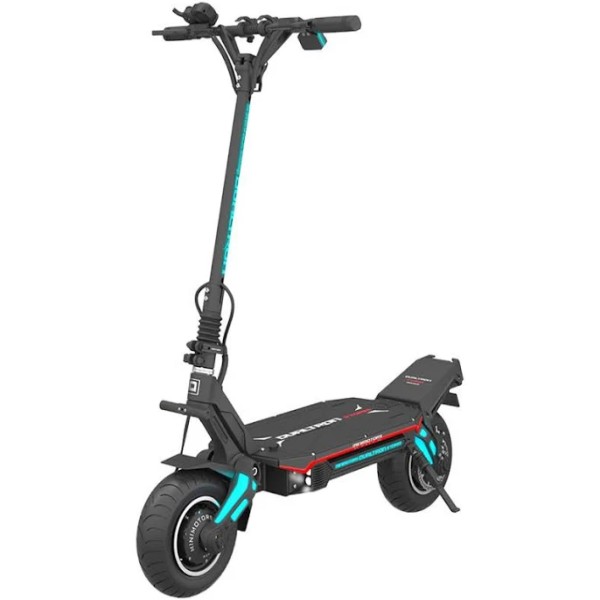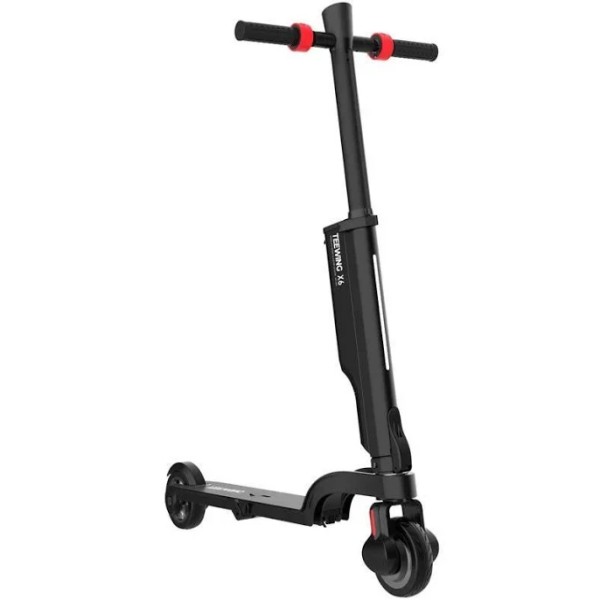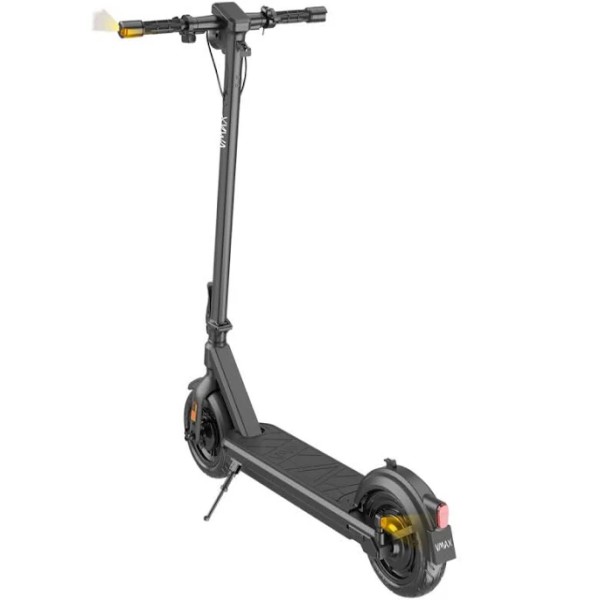Electric scooters have gained immense popularity as a convenient and eco-friendly mode of transportation. Their ease of use has made them a favorite option for short trips in urban environments. However, as these scooters become more common, questions arise regarding the legal requirements associated with riding one. Specifically, many people wonder: do you need a license for an electric scooter? The answer varies depending on several factors, including the scooter’s specifications and the laws in your location. Understanding the rules and regulations is essential for responsible riding. In this detailed article, we will explore the licensing requirements for electric scooters, the differences between various models, the safety considerations you should keep in mind, and the overall impact of electric scooters on urban transportation. By the end of this article, you will be well-informed about whether you need a license to operate an electric scooter.

The Growing Popularity of Electric Scooters
Over the last few years, electric scooters have surged in popularity, transforming how people navigate cities.
- Convenience: With the rapid pace of urban life, more individuals seek efficient transportation solutions for their daily commutes. Electric scooters provide a convenient option, allowing riders to bypass traffic jams and make quick trips without relying on public transportation.
- Environmental Impact: As cities become increasingly polluted, electric scooters offer a cleaner alternative to gas-powered vehicles. Their contribution to reducing greenhouse gas emissions aligns with the growing emphasis on sustainable living practices.
- Technological Advancements: Advances in battery technology have enhanced the performance and reliability of electric scooters. Increased range and speed attract more riders, making electric scooters a practical choice for various commute lengths.
- Accessibility: Electric scooters cater to a wide demographic, from young professionals to students and retirees. Their straightforward operation and lightweight construction make them accessible to a broad audience.
- Shared Mobility: The rise of scooter-sharing services has contributed to their increasing presence in urban landscapes. Users can easily rent electric scooters through mobile apps, promoting an on-demand transportation model.
Understanding the factors contributing to the growth of electric scooters provides context for exploring licensing regulations. As adoption increases, so does the importance of establishing clear and appropriate guidelines for riders.
Licensing Requirements for Electric Scooters
When considering whether you need a license for an electric scooter, it’s vital to understand the specific licensing requirements. These can vary significantly depending on where you live and the specifications of your electric scooter.
- Types of Electric Scooters: Licensing requirements often depend on the maximum speed and power of the scooter. Generally, electric scooters are categorized based on their specifications:
- Low-Powered Scooters: Typically, scooters with a top speed of 20 mph (32 km/h) or less may not require a license in certain regions.
- High-Powered Scooters: Scooters that exceed 20 mph or possess powerful motors might fall under the same regulations as mopeds or motorcycles. In this case, securing a valid driver’s license or a specific scooter license may be necessary.
- Local Laws: Since electric scooter regulations can vary significantly from one area to another, it’s essential to check local laws and regulations. Several cities and states have specific ordinances detailing electric scooter usage, including permitted areas, speed limits, and licensing requirements.
- Age Restrictions: Many regions impose age limits for riding electric scooters. In some places, riders must be over the age of 16, while others may require a minimum age of 18.
- Insurance Considerations: In some jurisdictions, securing insurance for an electric scooter may be mandatory. Understanding local insurance requirements can be crucial for compliance.
Checking local regulations ensures compliance and promotes safe riding experiences. Knowing the laws applicable to your jurisdiction helps riders better navigate their electric scooter experience.
Factors Influencing the Need for a License
Several factors come into play when determining whether you need a license for an electric scooter. Understanding these elements will help clarify situations that could influence licensing requirements.
- Motor Power: Electric scooters with powerful motors are often subject to stricter regulations. Depending on the motor wattage, local laws may classify these scooters similarly to motorcycles or mopeds, requiring additional permits. Usually, scooters with motors above 750 watts may fall into this category.
- Maximum Speed: The speed limit of your scooter is another influential factor. Many cities enforce specific speed limits for electric scooters. If your scooter exceeds the specified speed, you may need to obtain a license.
- Type of Use: Consider how you plan to use your electric scooter. If you expect to ride frequently in urban settings or for longer distances, more regulated scooters may be necessary. Casual users may opt for scooters with fewer restrictions.
- Compliance with Local Laws: Local legislation is paramount when determining licensing needs. Different municipalities and states have unique laws regarding electric scooters, so it’s crucial to research and understand your area’s regulations.
- Insurance Requirements: Some regions may impose mandatory insurance regulations for electric scooters. Knowing your insurance obligations can help clarify whether licensing is necessary for street use.
- Rider Age: The age of the rider can influence required credentials. For example, some municipalities may require minors to have parental consent or additional permits to operate electric scooters legally.
By considering these various factors, potential riders can assess whether they will require a license for their electric scooter before hitting the road.

Safety Guidelines for Riding Electric Scooters
Whether or not a license is required, riding electric scooters comes with responsibilities. To ensure a safe riding experience, adhere to these important safety guidelines:
- Wear Protective Gear: Always wear a helmet to protect your head. Depending on local regulations, additional gear, such as wrist guards and knee pads, may also be advisable, especially for new riders.
- Follow Local Laws: Abide by all traffic laws when riding your electric scooter. This includes following speed limits, yielding to pedestrians, and adhering to bike lanes and pathways.
- Be Visible: Ensure other road users can see you. Wear bright clothing or accessories, especially when riding in low-light conditions. Install lights and reflectors on your scooter for added visibility.
- Practice Before Riding in Traffic: Spend time getting accustomed to the scooter in a safe environment before navigating busy streets. Familiarize yourself with operability and braking systems.
- Maintain Your Scooter: Regular maintenance ensures your electric scooter is in good working condition. Check the tires, brakes, and battery regularly to avoid mechanical failures while riding.
- Stay Alert: Remain mindful of your surroundings. Be aware of cars, pedestrians, and cyclists, especially when navigating intersections or crowded areas.
- Use Both Hands on the Handlebars: This will help maintain full control of your scooter while riding. Avoid distractions, such as using a phone, while in motion.
By following these safety protocols, riders can significantly reduce risks, ensuring enjoyable experiences on electric scooters.
Common Misconceptions About Licensing and Electric Scooters
Understanding the regulations concerning electric scooters can be complicated, leading to various misconceptions. Here are some common myths regarding licensing:
- Myth: All Electric Scooters Require a License. While many areas require licenses for fast and powerful electric scooters, many models under specific limits may not require a license. Always check local regulations to confirm.
- Myth: Foot Traffic Rules Don’t Apply to Electric Scooters. Electric scooters are not exempt from pedestrian traffic rules. Riders should adhere to local traffic laws and consider foot traffic just as bicycles would.
- Myth: Insurance Is Not Necessary. Some individuals believe that electric scooters do not require insurance. However, in certain jurisdictions, insurance may be mandatory. It’s important to investigate your region’s requirements.
- Myth: You Can Ride Anywhere. Many people assume that electric scooters can be used on sidewalks. In most areas, riding on sidewalks is prohibited, and specific regulations govern where scooters can be ridden.
- Myth: No Minimum Age Requirement Exists. Some drivers might think there are no age restrictions for electric scooter riders. However, many places enforce minimum age requirements to ensure responsible use.
Dispelling these misconceptions helps clarify the regulations surrounding electric scooters, leading to safer riding practices.
Choosing the Right Electric Scooter for Your Needs
Understanding the requirements surrounding licenses will help you select a suitable electric scooter. Here are factors to consider when choosing an electric scooter that fits your lifestyle:
- Determine Your Purpose: Identify how you plan to use your electric scooter. Will it be for commuting, recreational riding, or sports? Knowing your intended use guides your choice.
- Evaluate Desired Speed: Consider the speed you wish to achieve. If you require a speedy model, look for scooters that can reach higher speeds but remain compliant with local regulations.
- Select Proper Battery Range: Ensure your electric scooter can handle your day-to-day travel. Opt for models with battery ranges suitable for your typical commutes to avoid running out of power mid-ride.
- Assess Weight Capacity: Check a scooter’s weight limit to ensure it accommodates your needs and those of any additional cargo.
- Compare Features: Different scooters may have various features, such as folding capabilities, hydraulic brakes, or built-in displays. Evaluate which features matter most to your riding experience.
- Research Brands and Reviews: Explore reputable brands and read customer reviews to learn about various electric scooters, from performance to durability. This information will assist in making an informed decision.
By considering these factors, you will be able to choose an electric scooter that meets your needs while complying with local regulations—ensuring a smooth ride.

Conclusion
Navigating the world of electric scooters and understanding the licensing requirements are fundamental to responsible riding. As the popularity of electric scooters continues to rise, so do questions about regulations like, “do you need a license for an electric scooter?” The answer will vary based on various factors, including local laws, the scooter’s specifications, and the rider’s age.
Through this comprehensive exploration, we have examined the history, safety considerations, licensing regulations, and misapprehensions regarding electric scooters. By ensuring compliance with local laws and practicing safety measures, you can enjoy an exhilarating and responsible riding experience.
Ultimately, electric scooters provide a practical, exciting, and eco-friendly way to navigate urban life. With care and attention to the necessary regulations, you will contribute to a safer riding culture and enjoy the many benefits these remarkable devices offer.